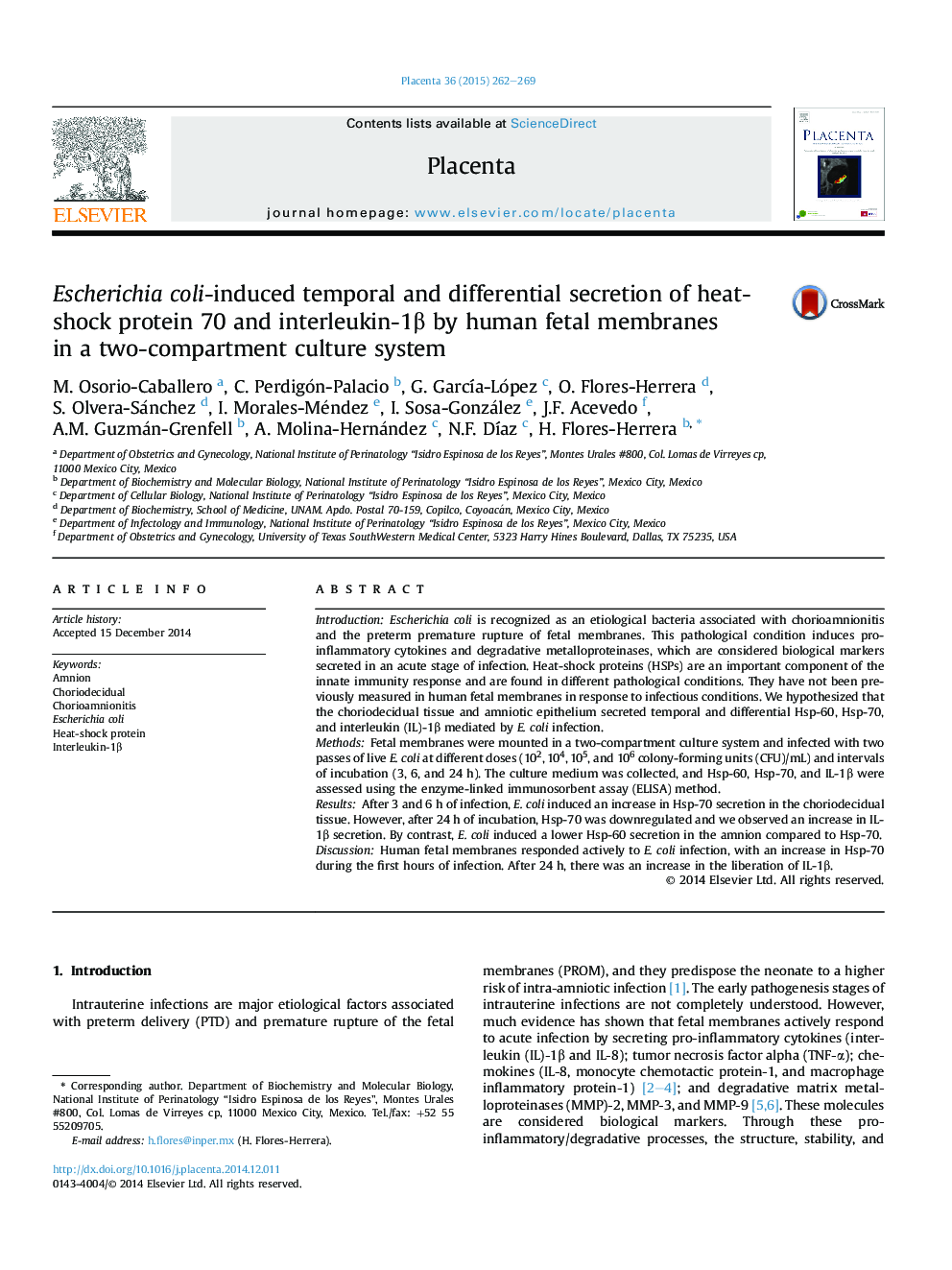| Article ID | Journal | Published Year | Pages | File Type |
|---|---|---|---|---|
| 2788646 | Placenta | 2015 | 8 Pages |
•In early infection, the initial secretion of heat-shock proteins (HSPs) decreased at 24 h.•In the late phase of infection, HSP decreased and interleukin (IL)-1β increased.•The response between the choriodecidual tissue and amnion was different.
IntroductionEscherichia coli is recognized as an etiological bacteria associated with chorioamnionitis and the preterm premature rupture of fetal membranes. This pathological condition induces pro-inflammatory cytokines and degradative metalloproteinases, which are considered biological markers secreted in an acute stage of infection. Heat-shock proteins (HSPs) are an important component of the innate immunity response and are found in different pathological conditions. They have not been previously measured in human fetal membranes in response to infectious conditions. We hypothesized that the choriodecidual tissue and amniotic epithelium secreted temporal and differential Hsp-60, Hsp-70, and interleukin (IL)-1β mediated by E. coli infection.MethodsFetal membranes were mounted in a two-compartment culture system and infected with two passes of live E. coli at different doses (102, 104, 105, and 106 colony-forming units (CFU)/mL) and intervals of incubation (3, 6, and 24 h). The culture medium was collected, and Hsp-60, Hsp-70, and IL-1β were assessed using the enzyme-linked immunosorbent assay (ELISA) method.ResultsAfter 3 and 6 h of infection, E. coli induced an increase in Hsp-70 secretion in the choriodecidual tissue. However, after 24 h of incubation, Hsp-70 was downregulated and we observed an increase in IL-1β secretion. By contrast, E. coli induced a lower Hsp-60 secretion in the amnion compared to Hsp-70.DiscussionHuman fetal membranes responded actively to E. coli infection, with an increase in Hsp-70 during the first hours of infection. After 24 h, there was an increase in the liberation of IL-1β.
